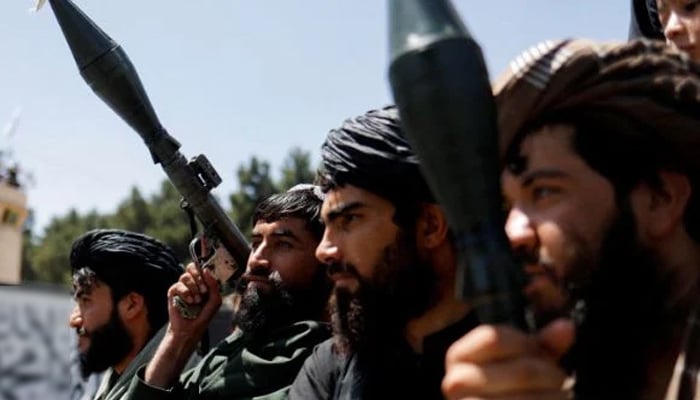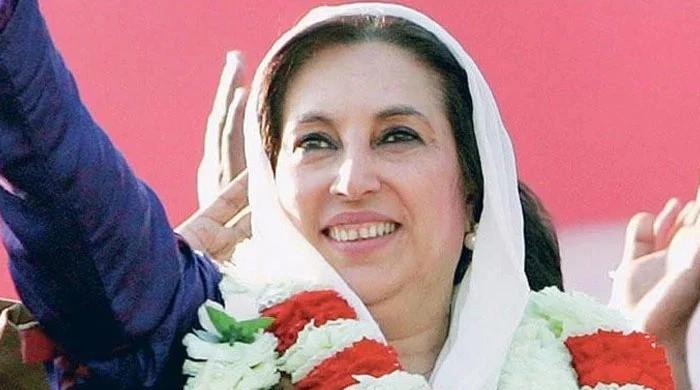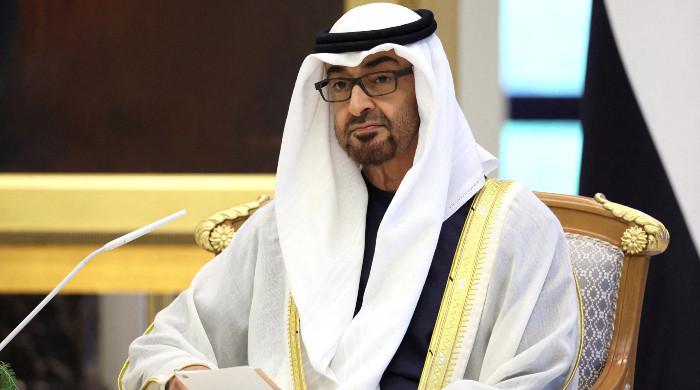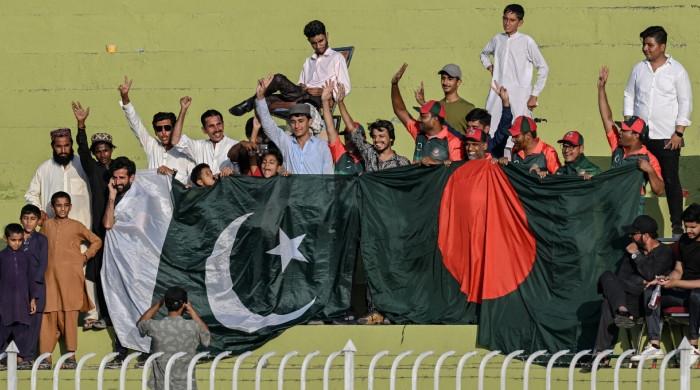Another Afghan war looming?
In last 70 years, Pakistan has fought six open wars and experienced dozens of secret wars
January 24, 2025

The famous quote "Geography is destiny" aptly applies to Pakistan, which remains a permanent prisoner of its geography. In the last 70 years, Pakistan has fought six open wars and experienced dozens of secret wars.
Whether these wars were inflicted upon Pakistan, invited by it, or voluntarily embraced, the fact remains that Pakistan, in its short history, has gone through two international wars in Afghanistan and four bloody wars with India.
Compared to Pakistan, China and Indonesia — which also became independent around the same time — have not experienced a single open war due to their secure geographical borders (the exception being the Indo-Chinese war, which was a skirmish compared to our deadly wars with India).
Similarly, although Singapore and Malaysia gained independence a decade after Pakistan, they have prospered economically because they have no existential geographical threats. Both countries have not faced a single war.
Pakistan, fortunately or unfortunately, is surrounded by India, Afghanistan, Iran and China. Except for China, Pakistan has issues with all its neighbours. With Iran, we have experienced tensions and sectarian disputes, but fortunately, we have never had an open war — though covert conspiracies continue.
Some blame Pakistan for prospering on a war economy, while others argue that our geography has both advantages and disadvantages. With India as our neighbour, Pakistan had no option but to fight India to maintain its sovereignty. The alternative was total subjugation to India, like Nepal and Bhutan, thereby surrendering our country’s ideals.
Four wars with India have proven that Pakistan is here to stay forever, and its sovereignty and philosophy can not be snatched away, even by a five-times larger India.
Another option was to align with India and accept its domination as a regional superpower, which might have brought peace, a better economy, education, and health facilities, but at the cost of ideological principles like considering itself a bastion of Islam and standing up to India on the Kashmir issue.
Geography is to blame for many of our issues with Afghanistan. We have already had two wars within Afghanistan, and another looms on the horizon. Although Afghanistan is a brother Muslim country, it has had problems with Pakistan since 1947.
Historically, the Afghan border has always brought trouble to this region. Pakistan has recently tried all options to persuade Afghans to stop its allied militants from entering Pakistan but to no avail. Pakistan’s years-long sacrifices for Afghans have been easily forgotten, and now these so-called friends have become our open foes. Perhaps out of compulsion, Pakistan has been left with no other option than war.
Some argue that we can take advantage of our geography by opening trade routes with India and Afghanistan instead of fighting wars. But they forget that repeated efforts by Pakistan to establish trade routes into Central Asia through Afghanistan have failed. Successive Pakistani prime ministers have tried to open this route, but all efforts have so far failed due to the Afghan and Indian governments.
Recent efforts by Pakistan to broker a deal with Tajikistan to find a trade route to Central Asia through the Wakhan Corridor may present a new opportunity. However, this alternative route can not solve the issue of terrorism originating from Afghanistan.
Therefore, something must be done to eradicate terror groups within Afghanistan. Pakistan has sought help from the US, China, and other Muslim states to fight these Afghan terrorists, but its concerns have largely gone unheard.
With Trump becoming the American president for the second time, it seems Pakistan and the US are on the same page again regarding the Taliban-sponsored terrorism from Afghanistan.
During his election campaign, Trump criticised the Biden administration for mishandling the Afghanistan issue, accusing Biden of abruptly leaving Afghanistan in undue haste without securing weapons first. It may be remembered that Pakistan has complained that leftover US arms and ammunition are being used against Pakistan.
This situation implies that Pakistan and the US must come together to reclaim these weapons. In his inaugural address, Trump announced stopping Afghan immigration to the US, though the previous administration had opened doors for soldiers and supporters of the US during their stay in Afghanistan.
The above points indicate a new Afghan war, with Pakistan once again at the forefront. The last US war against Al Qaeda was won by drone technology, similar to how the war against the Soviet Union was won by Stinger technology. Though Pakistan has a significant number of drones, achieving precision in hitting high-value targets may require the most modern and dependable drones of America, along with night vision technology, which helped the CIA eradicate the entire Al Qaeda leadership, as well as four ameers of the TTP.
Pakistan is facing a new war once again, and as a result, a war economy will again dominate. Pakistan will gain economic and political benefits similar to past wars. The US might temporarily turn a blind eye to Pakistan’s nuclear and missile programmes and may not be overly concerned about Imran Khan for the sake of its own national interests.
Wars always have heavy costs. Two Afghan wars have brought terrorism and religious sectarianism to Pakistan.
Earlier, we had to combat the inflow of heroin and Kalashnikovs during Zia’s martial law. But the new Afghan war will also be challenging and will have to be fought on both ideological and tactical fronts.
The Pakistan Army fought previous wars in the name of Islam against infidels, but fighting against the Taliban will be a fight among Muslims. Although they have been labelled as Al Khawarij by the Pakistani state, many Deobandi Muslims draw inspiration from them.
Maulana Fazlur-Rehman, the undisputed political leader of Deobandis in Pakistan, is always threatened by Taliban militants who pressure him to leave the constitutional path of politics and adopt militancy. He refuses to accept the Al Khawarij belief of debunking the constitution and taking control of the state through militancy.
If a new Afghan war begins, painful propaganda about Muslims being butchered by the state of Pakistan will arise. Pro-militancy religious leaders within Pakistan will try to exploit the situation, leading to heightened and dangerous levels of religious sectarianism.
Pakistan must make extra efforts to dispel this narrative.
If a new Afghan war breaks out, the use of drone technology may be a better strategy to avoid a Pakistani footprint on Afghan soil. The strategy to garner support from the Northern Alliance through Tajikistan is also considered a successful diplomatic move.
Central Asian Muslim countries can also play a role in combating terrorism in the region. China has been reluctant to ally with Pakistan against terrorist groups within Afghanistan, possibly due to its business interests there.
Pakistan needs to use its best diplomatic efforts to bring China on the same page before making any major decisions.
The writer is the editor of Jang in Lahore, an anchor, and the executive director at Geo TV.
Disclaimer: The viewpoints expressed in this piece are the writer's own and don't necessarily reflect Geo.tv's editorial policy.
Originally published in The News









